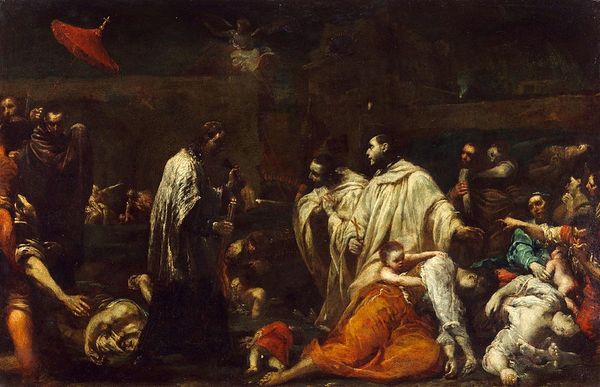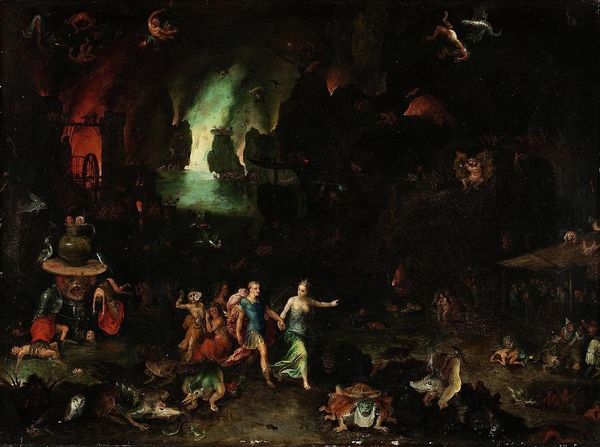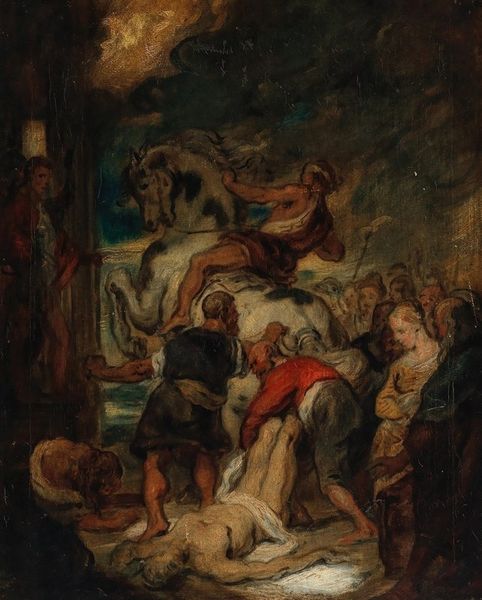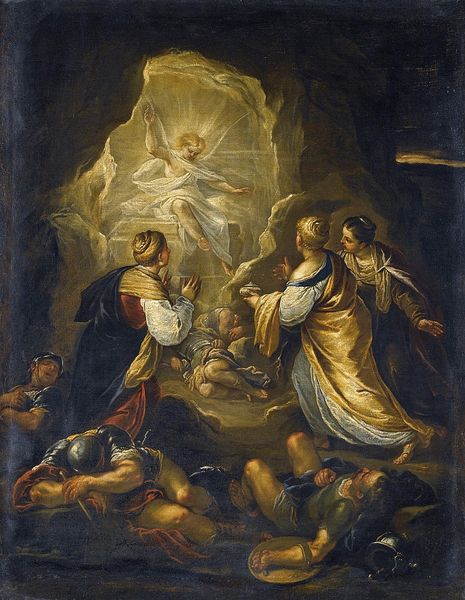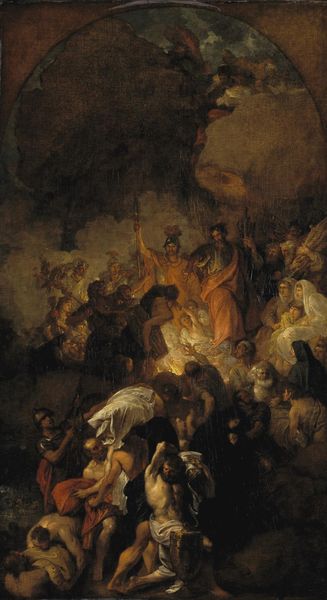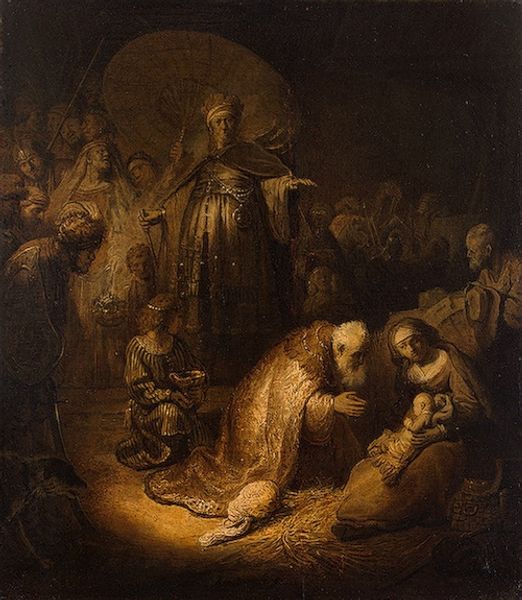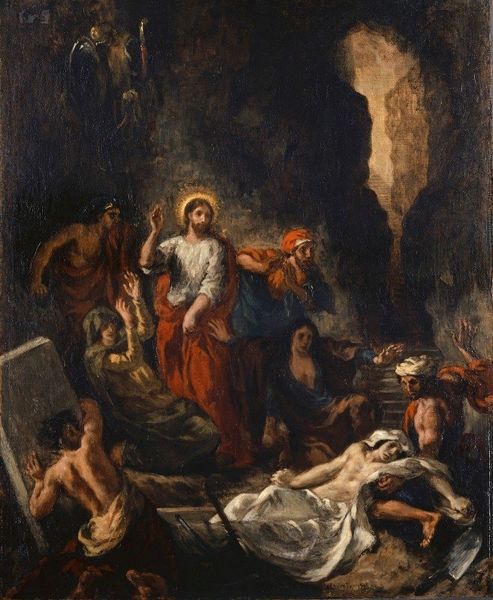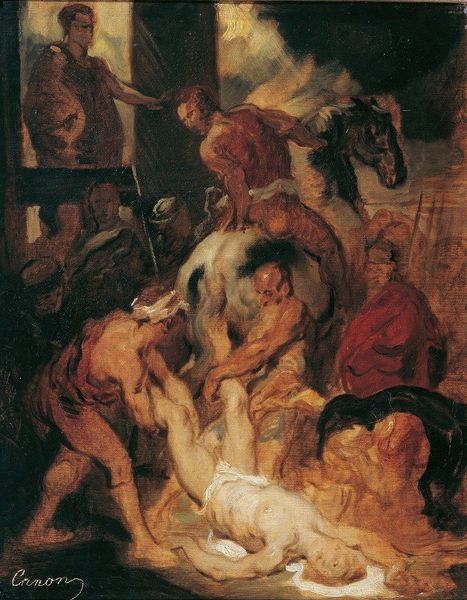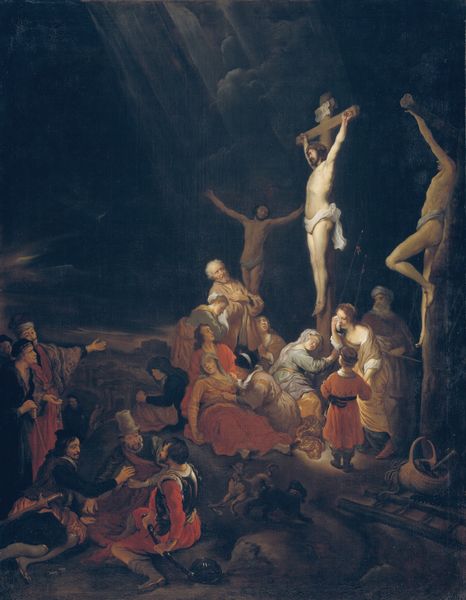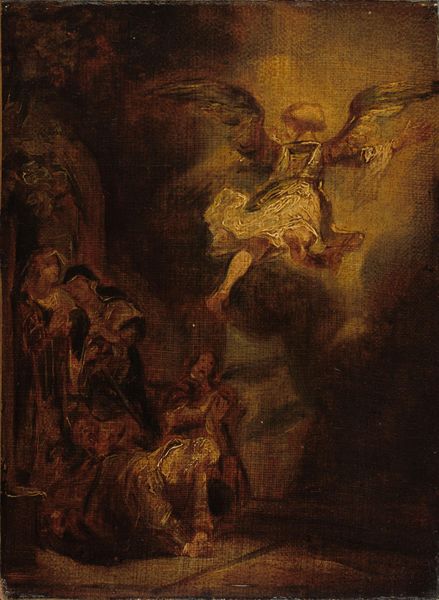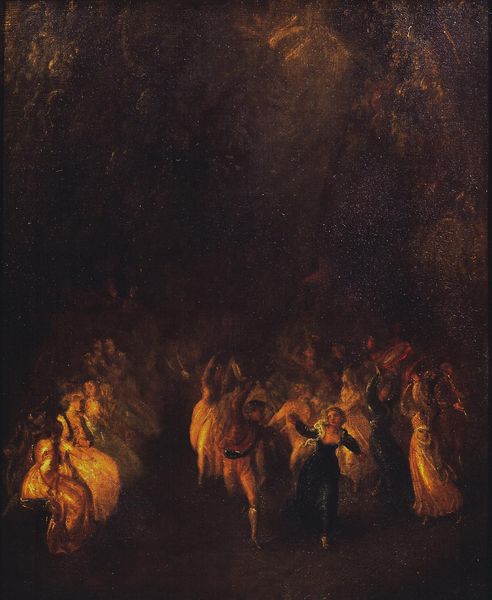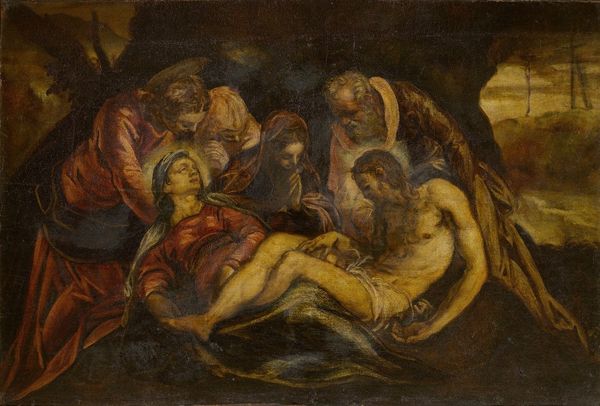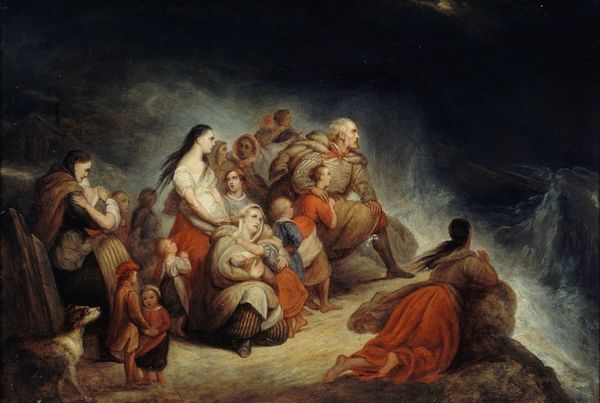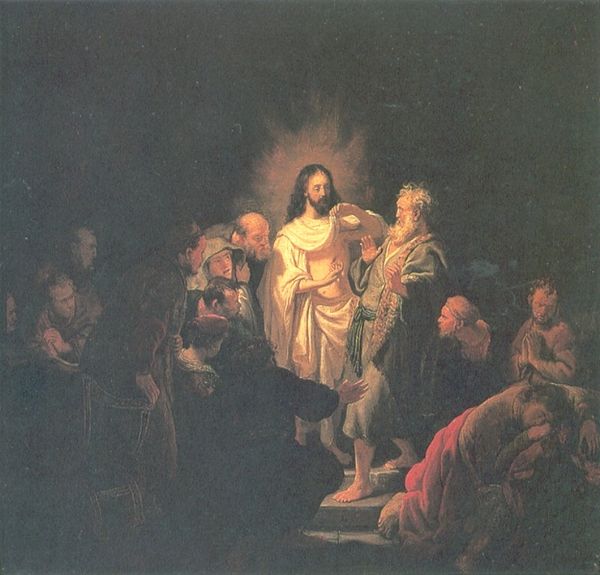
oil-paint
#
portrait
#
narrative-art
#
baroque
#
oil-paint
#
landscape
#
figuration
#
11_renaissance
#
oil painting
#
jesus-christ
#
christianity
#
men
#
the-seven-and-five-society
#
history-painting
#
virgin-mary
#
christ
Dimensions: 32 x 40 cm
Copyright: Public domain
Curator: This somber oil on canvas is "The Entombment" by Rembrandt van Rijn, created around 1635. It’s currently housed in the Hunterian Museum and Art Gallery in Glasgow. Editor: It’s incredibly moving. The lighting is what strikes me first. A dramatic use of light and shadow. A focused spotlight on Christ’s body, surrounded by deep, enveloping darkness. It directs my eye and elicits a profound sense of grief. Curator: Rembrandt uses the entombment as a visual metaphor to explore broader societal dynamics regarding grief, power, and the marginalization of certain groups. Consider the role of women, like the Virgin Mary, often relegated to positions of mourning and silent suffering throughout history. How does the image speak to historical narratives about pain, loss, and resilience across marginalized identities? Editor: Absolutely. Formally speaking, the composition guides our gaze intentionally. The downward diagonal formed by Christ's body and the supporting figures creates a sense of lowering, both literally and emotionally. The light isn't uniform; it pools and recedes, highlighting textures and emotions, giving them weight and tangibility. Curator: It’s also essential to examine Rembrandt’s political context. He was working in a rapidly changing Dutch Republic. "The Entombment" reflects religious and social upheaval. Editor: The limited palette – primarily browns and creams punctuated by stark whites – reinforces the somber mood. There’s a palpable stillness that suggests more than just death; it’s a moment heavy with the implications of what has been lost, with textures that convey a quiet visual solemnity. Curator: Viewing art like this asks us to confront not only historical perspectives on class, gender, and identity, but to also connect that history to our present moment. What injustices persist, and whose stories are still being silenced? Editor: The brushstrokes are loose but confident, capturing the rawness of human emotion in those moments of raw feeling and profound tragedy. The entire experience resonates deeply and stays with the observer, calling one to meditation. Curator: "The Entombment" can spur dialogue, encouraging us to think critically about those broader stories that still echo around the artwork. Editor: It serves as an exercise in appreciating how Rembrandt carefully considered his craft, utilizing composition and texture as the keys to deeper feeling.
Comments
No comments
Be the first to comment and join the conversation on the ultimate creative platform.
